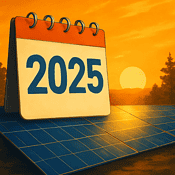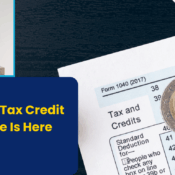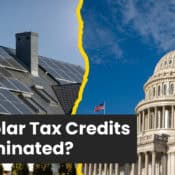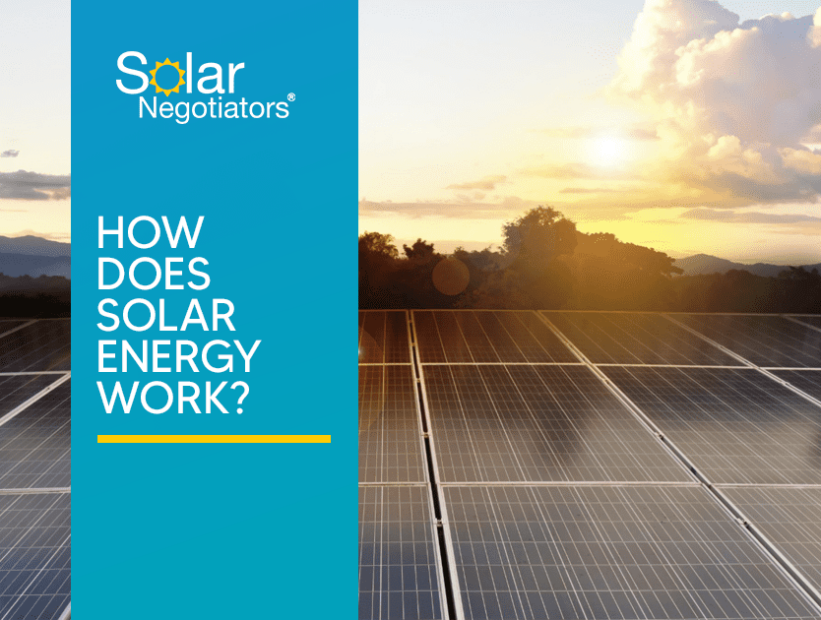
How Does Solar Energy Work?
You see solar panels everywhere. But how does solar energy work? In this article, we’ll explain how solar power works and the benefits of going solar.
What Is Solar Power?
We all need energy to live our day-to-day lives. Most of us get our energy from the local power grid, which could be producing electricity with non-renewables like coal or nuclear energy, or they could be producing their energy using water or something else. No matter what though, you still need energy. The benefit to renewable energy sources like solar is that you can get the energy you need without the associated environmental impact that you’d get from non-renewable sources.
Solar energy is all around us. Every day we see the sun, we see unused solar energy. It’s one of the most bountiful sources of energy available to us, and yet, it goes unused. With advances in solar technology, however, more and more people are finding that it’s easier and cheaper to power their homes (and their lives) using solar energy.
That’s why we’re seeing so many people make the switch to solar across the country. Couple solar’s affordability and green benefits with the independence of producing your own energy (and not being subject to the black and brownouts of your local grid system) and solar becomes the obvious choice.
But how does solar energy work?
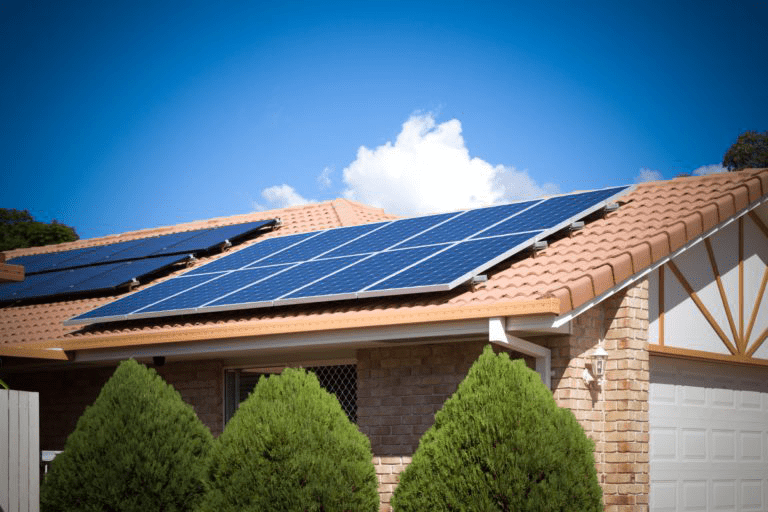
How Does Solar Power Work?
How does solar energy work step by step?
It goes through four primary steps.
1. Solar panels capture sunlight
The solar panels that we install on your rooftop are designed to capture a percentage of the sunlight that hits that part of your roof. We determine where the solar panels should go based on the direction your house is facing, the size and shape of your roof, and your home’s energy needs. This helps your solar panels capture as much sunlight as possible to maximize the amount of clean solar energy you have to help you power your home.
2. Your solar energy system converts the sunlight into electricity
Once the solar panels have captured the sunlight, the inverters on your solar energy system convert that sunlight into electricity that you can use to power your home. More specifically, it takes DC electricity and converts it into AC energy, which is used to power our houses and appliances.
3. You then use that energy to power your home
After the sunlight has been converted into usable electricity, the process is fairly straightforward. Your lights can turn on and off. Your appliances are able to run. And you can even use that electricity to charge an electric car if you have one.
4. Any remaining energy either goes to the grid or gets stored for later use
Your solar energy system will consistently create as much electricity as it can under the right weather conditions. And your house will use as much or as little electricity as it needs. So what happens if you use less than your system produces?
One of two things will happen. Either your system will send that electricity through the grid to your local powerplant to be reallocated for some other use or it will be stored through solar battery backup so it can be used at night when your system is no longer producing electricity.
Depending on where you live, you can get credits from your local energy company for your excess electricity, but storing it may be more useful. It just depends on your specific situation.

What’s The Benefit Of Going Solar?
We’ve already talked about the benefits of going solar, but it’s worth going into a bit more detail about them.
There are three main benefits to going solar.
1. Affordability – Every year solar becomes more and more affordable. More and more people are finding that solar energy is actually the most affordable energy option out there for them thanks to the tax incentives offered by local and federal governments, the ever-innovating technologies that maximize energy production and minimize electricity consumption, and more.
2. Environmentally friendly – A lot of people want to make a difference in the world. And solar provides them with that opportunity every day. If you’re wanting to lessen your dependence on non-renewable energy and decrease your house’s carbon footprint, clean solar energy can help.
3. Energy independence – If you’ve ever found yourself in the middle of a blackout you know how debilitating it can be to be without power. In fact, being without power can be life-threatening if you have medications that have to be refrigerated, or if you depend on certain medical devices, or live with someone very young or very old who cannot handle the heat like you. Solar energy is great because it gives you more energy independence that’ll prevent you from being a victim if grid blackouts occur.
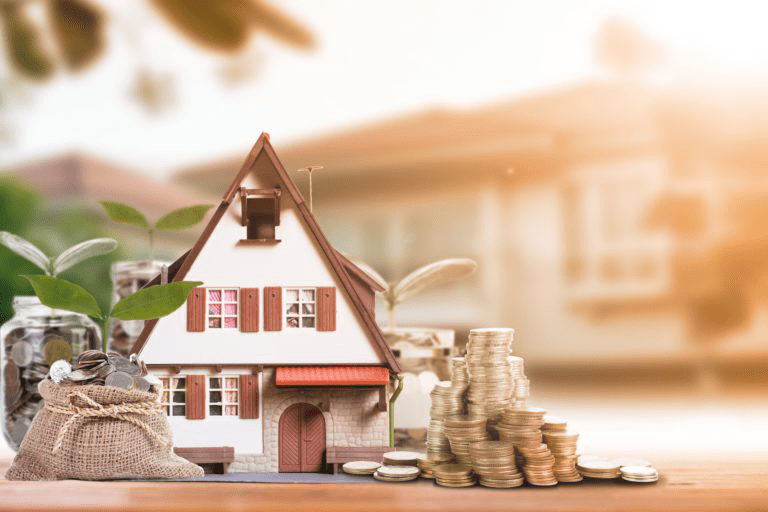
Solar Negotiators Can Help You Go Solar
If you’re interested in going solar, Solar Negotiators can help you out.
Contact one of our reps and we’ll help you know for sure if solar is a feasible, affordable option for you and your home.

Recent Posts
Reduce your reliance on the energy grid.
Get Solar In
Your Inbox
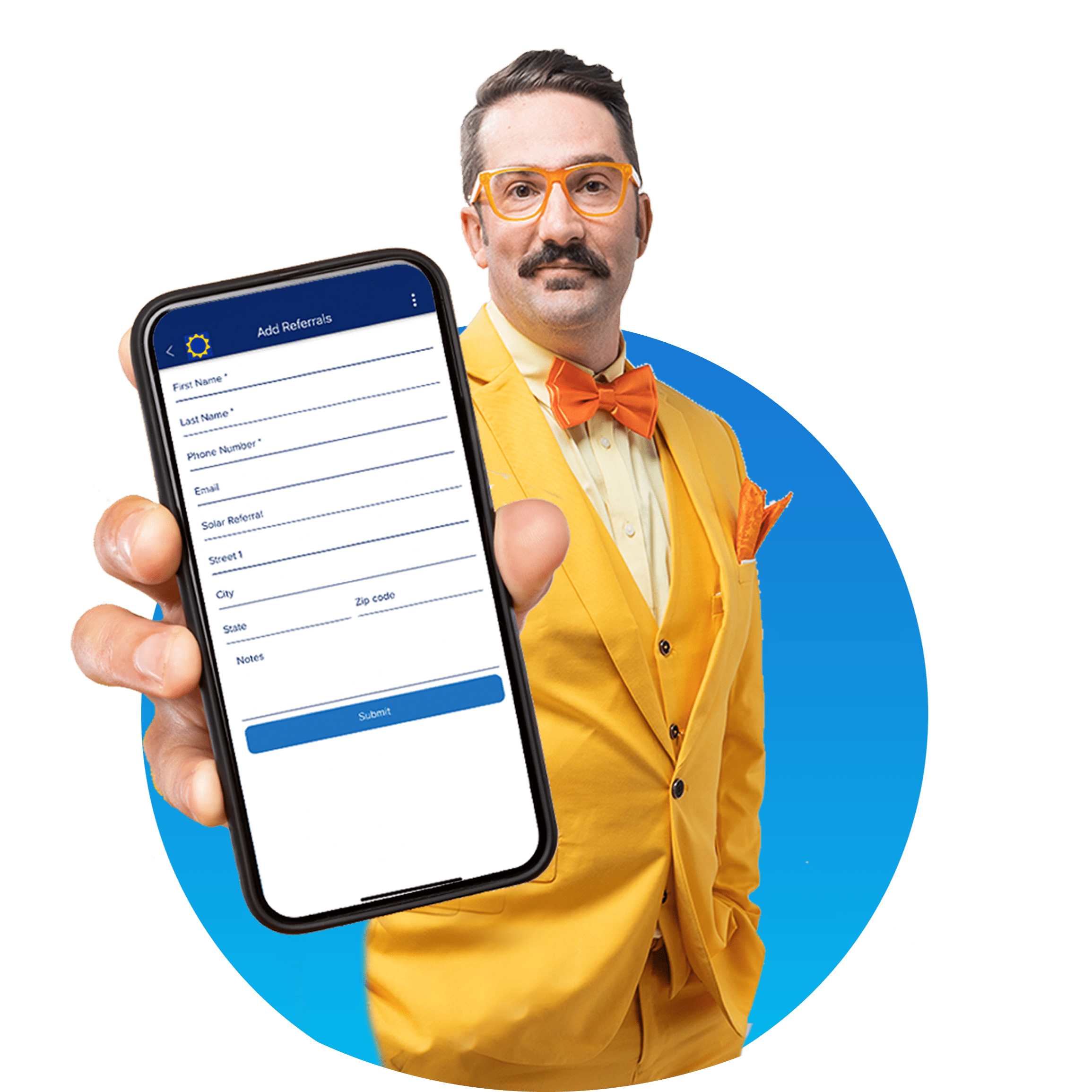
Refer friends and get paid in-app
The more referrals you bring in, the higher your earnings.
Earn $1,000 for each referral, and bonuses of up to $1,500 once you hit your 10th referral.
